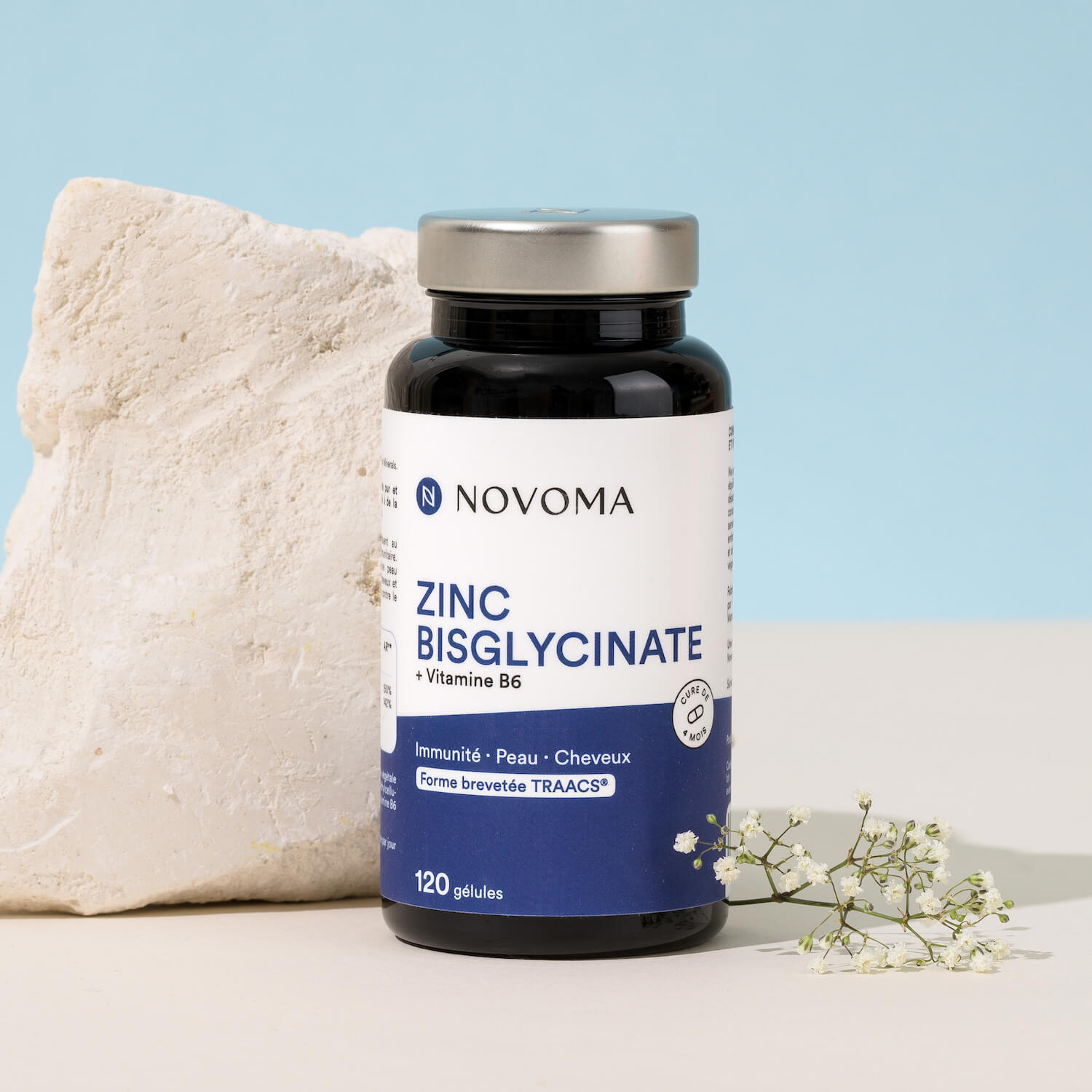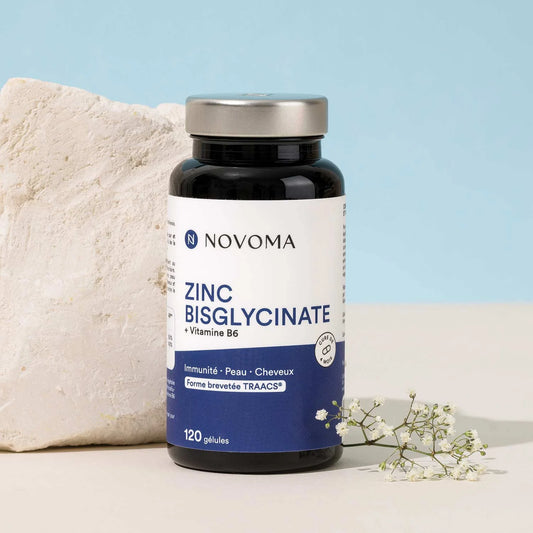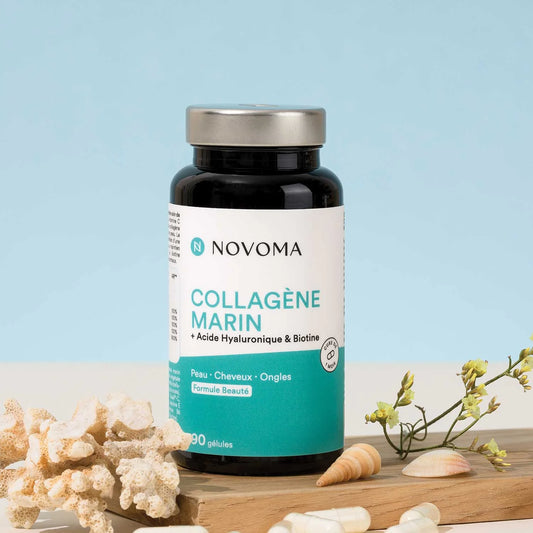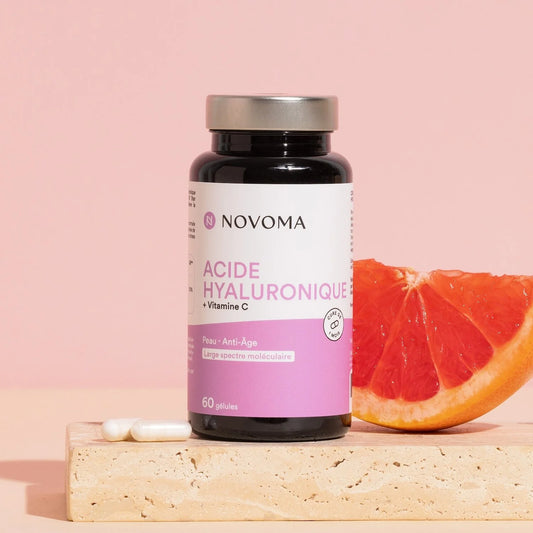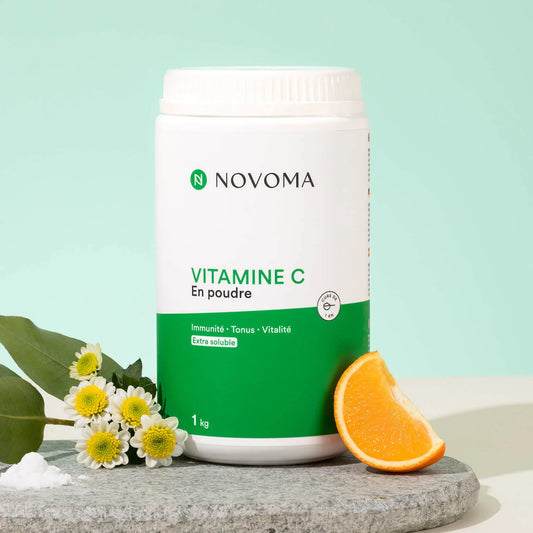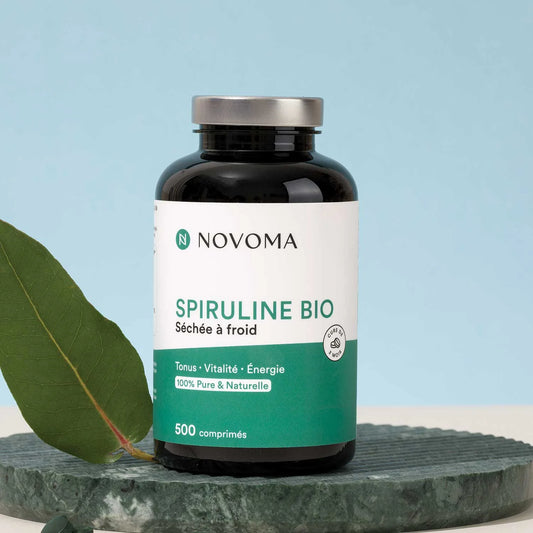
Zinc: an effective solution against acne?
Acne affects almost everyone at some point in their lives, and many people deal with it daily.
For some, acne can be a mild occasional annoyance. For others, it may be a painful skin condition that causes pimples and blackheads.
Various factors can influence the severity of a person's acne. For example, genetics is one of the main factors that determine whether or not you're prone to breakouts. We can also cite diet or stress level.
One of the most effective ways to treat acne is to use natural treatments such as zinc, an active ingredient known for its anti-inflammatory and healing properties.
In this article, we will explore the role that zinc plays against acne and the benefit of integrating it into your beauty routine to improve the quality of your skin.

What is acne?
Acne is one of the most common skin conditions, affecting almost everyone at some point in their life. It usually develops between the ages of 12 and 25, but it can affect people of all ages.
It is a skin condition that causes blackheads, whiteheads and pimples on the face, back of the hands and other parts of the body.
Acne is caused by an increase in the production of hormones such as testosterone and insulin. Besides testosterone and insulin, bacteria can also increase the production of these hormones, leading to the formation of acne.
Acne can range from mild to severe and can cause a number of side effects, including pain, scarring, and social anxiety. The severity of acne is determined by genetics, hormones and stress levels.
What is the role of zinc against acne?
Zinc and acne prevention
Zinc is an essential mineral found in many foods. It contributes to the maintenance of normal growth and development of tissues and organs, supports immune function and preserves the acuity of the senses of taste and smell.
But beyond these benefits, zinc has a very interesting role in promoting healthy and clear skin. Zinc proves to be an effective ingredient in preventing acne. And this is mainly linked to its anti-inflammatory and antioxidant properties, which help prevent the formation of acne lesions and the redness associated with acne.
Scientists have discovered that acne spots contain large amounts of a bacteria called Propionibacterium acnes. This bacteria thrives in an inflamed environment, which is why it is so common in acne.
By inhibiting bacterial proliferation, zinc helps reduce inflammation and, in fact, prevent acne.
Zinc and acne treatment
In addition to reducing inflammation, zinc helps regulate hormones that control sebum secretion. However, when sebum production is too high, pores become clogged and pimples appear.
By limiting excess sebum, zinc therefore helps to cleanse the skin and reduce skin imperfections.
It should also be noted that zinc promotes the healing of skin damaged by acne.
We recommend you
Zinc Bisglycinate
Synergistic formula based on zinc bisglycinate and vitamin B6.
- ✅ High absorption zinc
- ✅ 15 mg of elemental zinc per capsule
- ✅ Made in France
- ✅ 4 months of treatment
How to choose the right anti-acne zinc treatment?
You will have understood, zinc is essential to keep skin healthy and beautiful. To achieve this, taking a zinc-based food supplement turns out to be an excellent solution! But before integrating zinc into your beauty routine, and for optimal effects, remember to monitor a few selection criteria:
- the form of zinc : opt for a well-assimilated form of zinc, such as zinc bisglycinate.
- zinc dosage : an anti-acne treatment must provide a minimum of 10 mg of zinc per day, and ideally 15 mg.
- the duration of treatment : we recommend that you take zinc every day for 2 months. So choose a treatment that is long enough to get the most out of it.





